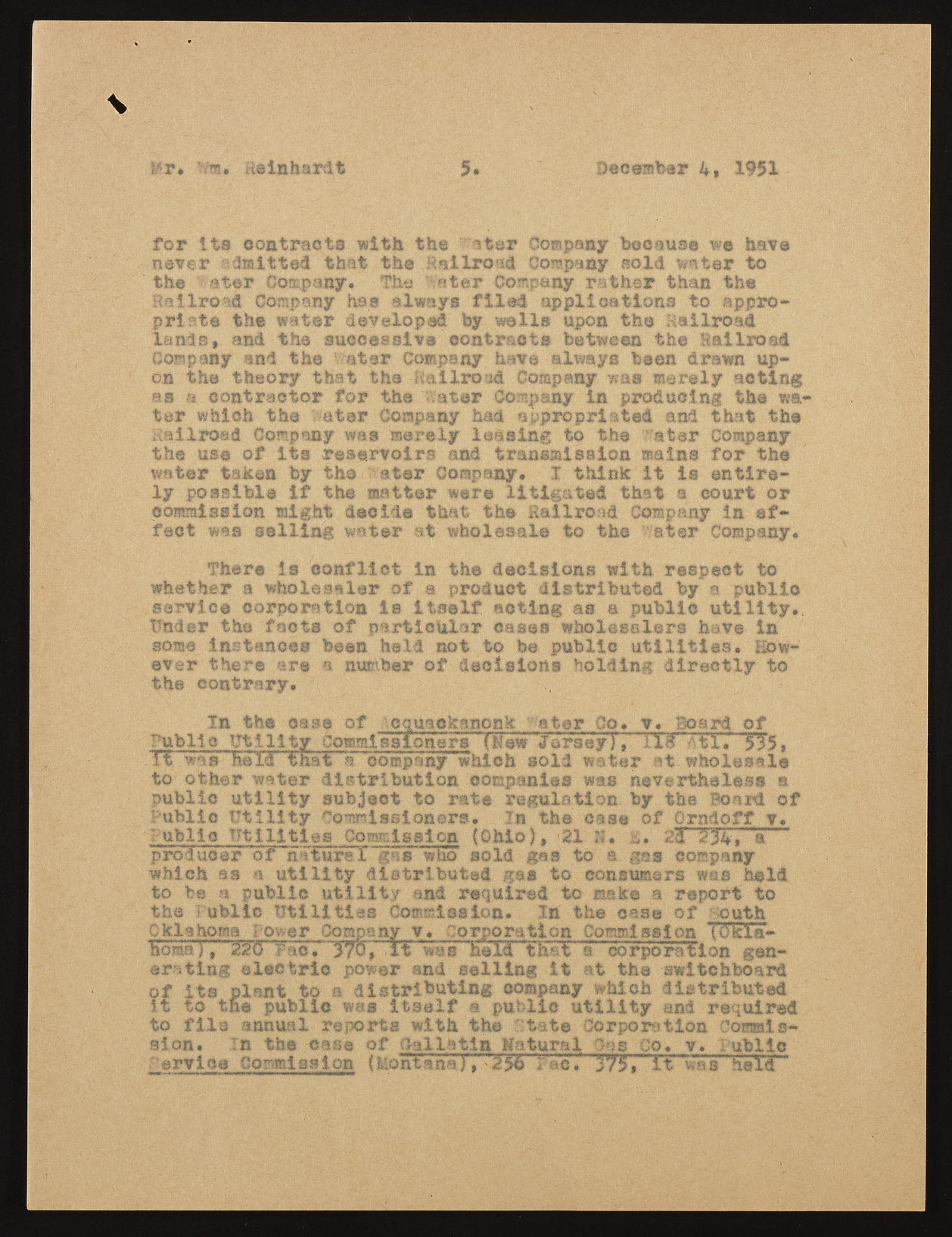Copyright & Fair-use Agreement
UNLV Special Collections provides copies of materials to facilitate private study, scholarship, or research. Material not in the public domain may be used according to fair use of copyrighted materials as defined by copyright law. Please cite us.
Please note that UNLV may not own the copyright to these materials and cannot provide permission to publish or distribute materials when UNLV is not the copyright holder. The user is solely responsible for determining the copyright status of materials and obtaining permission to use material from the copyright holder and for determining whether any permissions relating to any other rights are necessary for the intended use, and for obtaining all required permissions beyond that allowed by fair use.
Read more about our reproduction and use policy.
I agree.Information
Digital ID
Permalink
Details
More Info
Rights
Digital Provenance
Publisher
Transcription
Mr* Reinhardt 5* December 4» If51 for Ita contracts with the '••?'a ter Company because we have never admitted that the Railroad Company sold water to ' theifrater Company* The '%ater Company rather than the Railroad Company has always filed applications to appropriate the water developed by well# upon the Railroad lands, and the successive contracts between the Railroad Company and the atar Company have always been drawn upon the theory that the Railroad Company was merely acting as a contractor for the water Company in producing the water which the ater Company had appropriated and that the Railroad Company was merely leasing to the rater Company the use of Its reservoirs and transmission mains for the water taken by the Weber Company* I think it is entirely possible if the matter were litigated that a court or commission might decide that the Railroad Company in effect was selling water at wholesale to the /ater Company. There is conflict in the decisions with respect to whether a wholesaler of a product distributed by if publio service corporation is itself acting as a public utility*. Under the facts of particular cases wholesalers have in some instances been held not to be public utilities. However there are a number of decisions holding directly to the contrary. In the case of ^couackanonk ?e.ter Go* v» Board of ?Publlo Utility Commls3ionera rMew''’l'ar3eV]. f t 1,.il#"a tX. 535, was herd' "that' 'a company which sold water at-wholesale to other water distribution companies was nevertheless a publio utility subject to rate regulation by the Board of Public Utility Commissioners. In the case of Orndoff v* Public Utilities Commission (OhioV* '21 H. h. 2cT 534,.a produder'bf^hatvirs 1 "gas wKo sold gas to a gas company which as a utility distributed gas to consumers was held to be a public utility and required to make a report to the Public Utilities Commission. In the case of south Oklahoma Power Company v« Corporation Commlaalon ’(die la- Soma)", 22C W c V 3?0, it was heli that a corporation generating electric power and selling it at the switchboard of ita plant to a distributing company which distributed it to the public was.itself a public utility and required to file annual reports with the state Corporation Commission* In the -case of Gal Latin Matural gag ill v* Public f-arviee Commlsalon (Mon€ahay,r~r256 Fee." ^75Vrnit w a 3 ’held"'-

